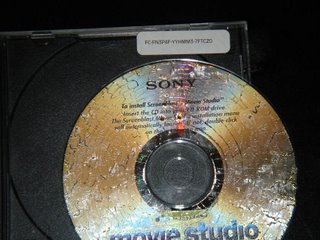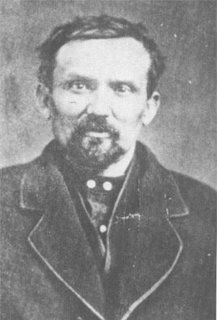Back Home
Mme Metro and I partially cancelled our southern trip.
But here's how it went: Due to some tickets to an evening of tasting the local wines (some 200 available, less than 50 sampled, I regret to report) we had to wait until the Saturday morning of the Thanksgiving long weekend.
We set off at oh-dark-stupid and crossed the border at 7 AM on a Saturday. US Customs and Border Protection were ready for us. As we pulled up to the sole open kiosk two bright, alert young fellows virtually leapt to inspect our trunk. As Mme observed, we had clearly made their morning. We showed our passports and were waved through. It is to date the single most pleasant and normal-seeming southbound border-crossing experience in years.
We headed south into the US. It seems odd to say it, but there are physical changes that take place across the border. Odd, because why should a political boundary so affect the landscape? Though I can recall vividly the contrast between the East and West Berlins, our political systems here are so similar that we often forget or ignore the differences. But they
are different. So why should anything stay the same, really?
The landscape broadens. Instead of the narrow green valley Mme and I live in we find ouselves on something like the dead sea bottoms of
Barsoom, guarded by parallel rails of flat-topped mesas. It reminds me that I think of America South as a country of vistas. It is a wide land, broad and beautiful.
The towns shrink. I suspect that to US citizens, this is the outer reaches of civilization, this northern clime. Much as in Canada we live in our narrow southern band around the border and regard outposts such as Shilo,
Fort McMurray, or Dawson Creek as the edge of the world; much to the mirth of the residents of Yellowknife,
Churchill, and Iqaluit.
Most of the towns along the
great river are connected with the hydro industry, with some farming--though far below the concentration of farms "back home"--and related industries thrown in. I keep an eye out for abandoned
Nash Mets or
Yamaha U7s. They're sometimes found on farms, usually in a pile of rusting other junk. We see fewer cultivated fields.
The towns close to the road are tidy, almost
Mayberry-esque. Lots of civic billboards or announcements: "Home to the Manglewurzels--Runner-up Champions
State Softball League 2004!", "The Flounderburg Mafia Welcomes YOU!", "Home of the World's Largest Ball of String As Measured By Linear Footage Using Jute Twine Only!". [A side note: on my travels as a trucker I was overwhelmed by the number of
World's-Biggest-Ball-ofs there are.] Neat flowerbeds. Older-style houses, usually small company-type buildings, comforted up in the dedades after construction. There are abandoned houses and businesses too, some tributes to modern industrial efficiency, some--gas stations and ice cream stands especially--to modern fuel economy, and some to fevered hope that on a stretch of 60-mile-per-hour (100 Km/h) road, someone would be in a sufficiently amiable mood to stop and buy trinkets, fireworks, or souvenirs.
In Safeway's where we stop for groceries, Mme is impressed by the fact that three aproned assistants ask if they can help her. I think this has more to do with the size of the town and the fact that it's barely ten on a Saturday morning, but I'm glad to see it.
We stop at the
Eighth Wonder of the World (again, one of many) and stare at its concrete immensity for a while. I reflect on the fact that today the same amount of power could be generated by a dam less than half the size. Still, all megaprojects are impressive. They come into being as Opposition Party targets, criticized as "white elephants". But somehow a party in power undertakes a bold, glorious, grand adventure, spending money lavishly to acheive something no-one else has ever dared to attempt.
Sometimes these things go bad, fall out of favour, or fashion, or date. They are outstripped by technology as the cornerstone is laid. They become politically inadvisable when the costs of labour or concrete skyrocket. It's no coincidence that many US megaprojects date from the Depression, when labour was cheap and the men were glad to get it. But many fulfill national dreams: the Transcontinental Railway, the Interstate System, Canada's Medical System ...
From there we drive ever southward, picking up progrssively bigger highways. Another triumph of America. In Canada, without the
Eisenhower drive to spur construction, and with the increasing practicality of air travel, it took us until the 196os to pave the last mile of a trascontinental highway, even though the railroad it ran beside had been built eighty-odd years before. In fact, the Trans-Canada Highway ran across Saskatchewan as a two-lane road until about 2000!
Canadian highways and older US routes often contour and switchback up hills. But many of America's western routes are
near-straight. On all of my trips there has been some moment where I have admired a parade of headlights and taillights going repectively up or down some mountain, tamed by a ribbon of tarmac, in the dark. What must it cost, to plan, design, and build a limited-grade slope straight up a massive geological feature?
We drop south until we are running beside the Columbia River, looking across at Oregon. At the junction of US Route 97 and US Route 14 we stop to take in Stonehenge.
Around the time of the First World War
Sam Hill, a Quaker (a Christian religious sect devoutly opposed to war), visited the original Stonehenge in England. He was told (inaccurately, as modern archeology would have it) that the great stones were a site for human sacrifice.
Something caught fire in his imagination, and when he returned home he built this reproduction to commemerate the human sacrifice made by his county in the Great War. It seems appropriate to visit this place now.
The stones are some sort of concrete composite, laboriously built into the shape of the original massive calendar. On each of the inner circle stones is a
plaque or two with a name and two dates. Some of the dates are very close together.
A few hundred yards away stands a modest wall of three five-foot-high granite panels with the names of the county boys who went off to fight other wars when "never again" kept turning out to be ever-shorter periods. Soon, I'm sure, there will be another panel added. Mme and I pay our respects with a camera and drive on.
Of the night and the following morning let it suffice to say that I come from a family of campers. Mme Metro does not. This culture clash produces some testy moments as I brew a fine pot of coffee in the AM. We need a bigger tent, apparently.
We make our way into Portland under lowering skies and classic coastal pre-winter drizzle. Breakfast is a Sunday-morning Dennys restaurant crowded with people who have just come from church, people who are on their way to church, and people who should be in church. The service is good and friendly; my breakfast of sausage rounds, sausages, farmer's sausage, and pancakes is tasty and just slightly overwhelming.
On into Portland. We cross the Iron Bridge and are downtown, rolling along beside a turn-of-the-century park complete with modern homeless people sheltering beneath a decorated bronze elephant. By coincidence we are less than three blocks from our destination, Powell's books. We park and, to get three dollar bills to feed to the ticket machine, I purchase two
Powerball tickets from the nearby corner store. The jackpot, five days before the draw, is $25 million US. It is likely to grow. Though not to
this size.
If Mme or I win this Powerball, I promise we will immediately begin visiting all of our Avid Fans with small thank-you gifts. Even if we have to split it with someone--or each other.
Powell's is a nest of rooms, each in its own colour. By some odd irony, the room housing automotive manuals, gunsmithing, hunting and fishing is the Rose Room. As we enter, the first thing that catches my eye is "
Soulless", a riposte to Crazy Annie Coulter written by someone who actually has credentials to go with her good looks and opinions. It occurs to me that the current team in office fears "liberal intellectuals" for good reason. Most of their committed support base don't write good books. Unfortunately it's also true that they don't read them, following the example given them by their leader.
But aside from this cynical thought, most of my time a Powells is spent in a combination of awe (1.2 million books under one roof!) and quiet browsing. Want a reference guide to how to walk different breeds of dog? A manual on how to assasinate your aunt? Want to know the real secret GM's hiding about the water-powered car? Powell's has it. There are so many books here that Mme and I have to get a passport for our (unused) Portland guidebook so that they'll know we brought it in with us.
At Powell's I learn one piece of great news:
Joseph Wambaugh is still alive, and publishing. Despite this, I hold fast to my goal of picking up only one book. The book I have chosen is Neil Gaiman's
American Gods. I finished it last night, by the way. It's largely a road-trip novel, but this is to sell short the many threads of story that weave into this hawser of a book. Faced with the choice between the North American publication and the British one, I choose the Brit--on the cover it says "As good as Stephen King or your money back".
I find the book that twenty years ago convinced me to purchase a '63 Rambler American that hadn't run in ten years or more. It cost me $50 and sat in a friend's driveway for a few months before being scrapped. The trouble was I knew nothing about cars, and though I was impressed with the book, I had no practical way of getting moving on the project. My Nash has been with me for nearly a decade-and-a-half, but almost always progressing (aside from the repeated disassembly of the bits I put back together wrong).
I contemplate buying the book, then catch the list of bodywork supplies. It includes lead filler. I check the publication date: 1984. When I first picked it up it was inspirational and new. Now, although the basic ideas remain sound, it is dated.
With iron control I am able to persuade Mme Metro to keep herself to two books It says much about Mme that knowing that we were headed for a massive, nay epic, bookshop she nevertheless bought a copy of
To Kill a Mockingbird as we left Canada. One of the most published novels in English ever, available doubtless in the 50¢ bin at Powell's, but she bought it for five times that price at home.
We are quiet for a while as we leave Portland, having seen so much less of the city than I would have preferred. Mme Metro, I know, is dreading the idea of setting up and camping in the rain which spatters the west face of the mountain ranges to our east. But I know we can't find a campsite in daylight on the east side.
After a roadside stop and some discussion, I offer to drive the remainder of the distance home. This will allow us to have one carefree day in which to do the things we're neglecting on this ill-conceived-but-enjoyable-mostly venture.
Mme Metro is clearly relieved.
I have been at the wheel on and off since three PM when we pull into Canada Customs at one AM. The guy in the booth barely looks at us.
"What the hell is this?" I fume "Work-to-rule?"
Still, we're back. We whirr through darkened orchards, listening to NPR--which ironically comes in better here than many of the places we've driven through. We're home quickly. The cats don't seem to have noticed our absence.
Too short a trip to really sink into, yet we made our basic goals. Mme got a look at more than the interstates. We've met a couple of really nice people. I remembered (unfortunately) the best things, the things that attracted me to trucking in the first place.
Is there more one can ask from a trip that short?






